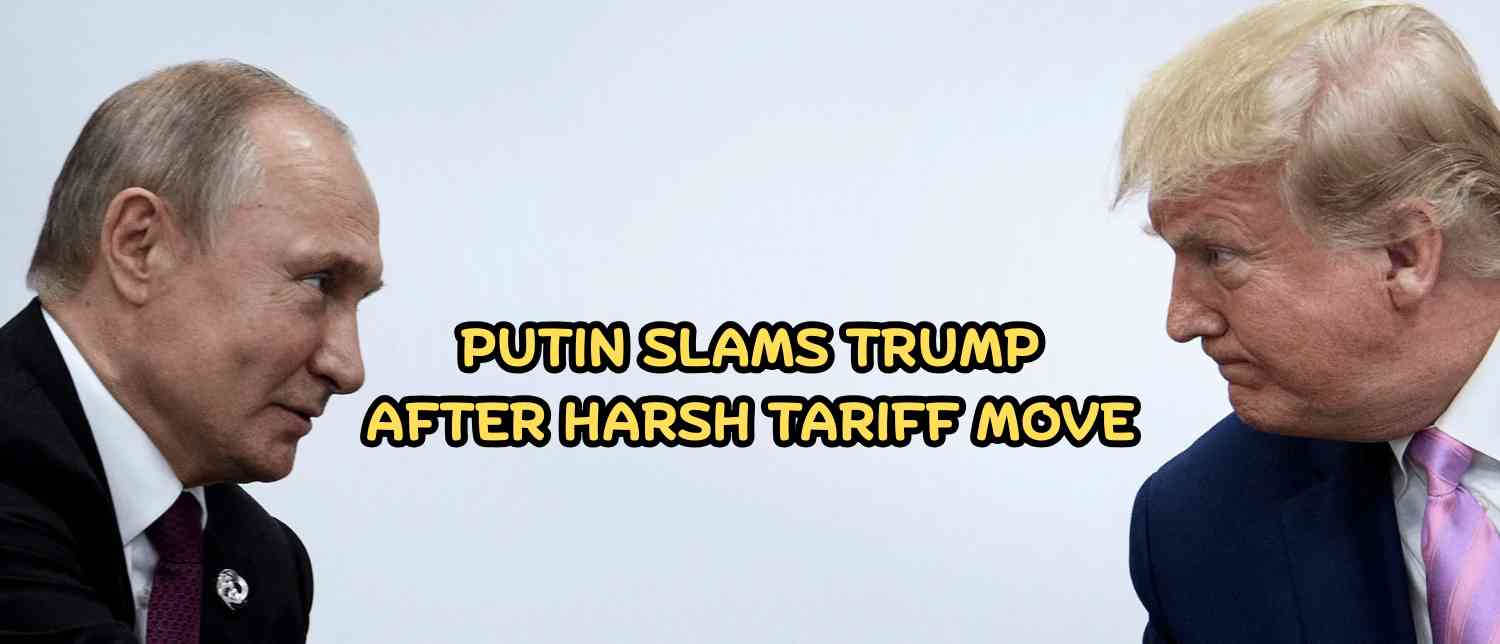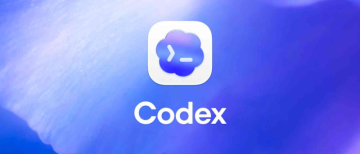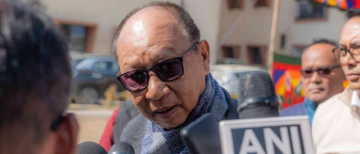Russian President Vladimir Putin has delivered a sharp rebuke to U.S. President Donald Trump’s tariff-driven foreign policy, calling out Washington’s reliance on punitive economic measures against major powers such as India and China. Speaking at a press briefing during his visit to China on September 3, Putin cautioned that the “colonial era is over” and that the United States cannot treat sovereign nations as subjects to be punished.
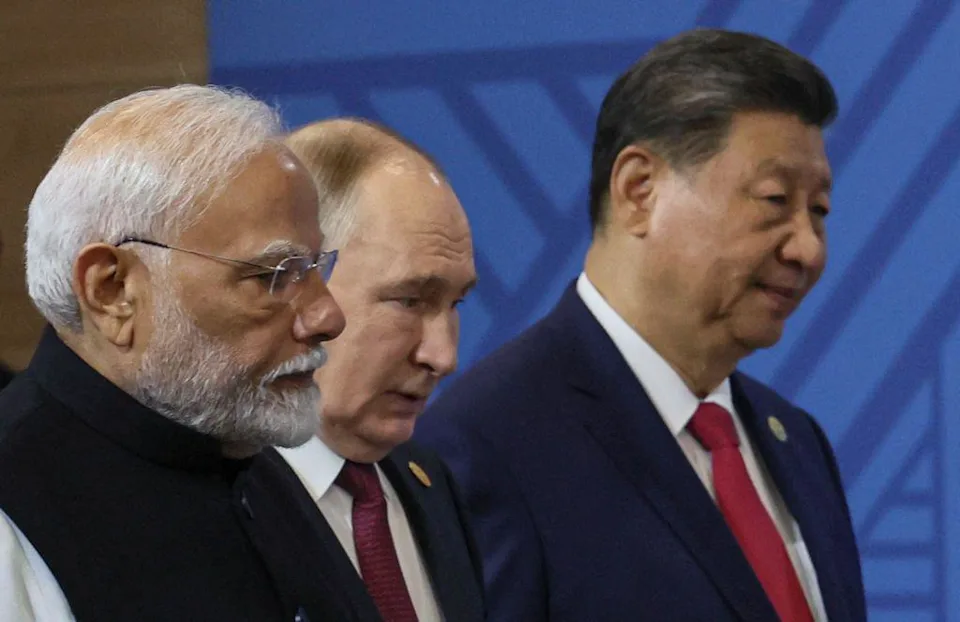
Putin’s Rebuke: “You Cannot Talk to India or China in That Way”
Putin’s remarks came amid escalating trade tensions between Washington and its global rivals. The Russian leader said both India and China, with their combined 3 billion people and powerful economies, possess strong domestic political systems and unique histories that make them resistant to coercion.
“When somebody [Donald Trump] tells you that they are going to punish you… you have to think about the leadership of those big countries,” Putin stated. He added that India and China had endured “difficult periods” in their histories, marked by colonialism and repeated violations of sovereignty, and therefore, their leaders cannot afford to appear weak.
“If one of them shows weakness, his political career will be over, which influences his behaviour,” he noted, pointing to the political stakes involved in confronting U.S. sanctions and tariffs.
“Colonial Era Is Over” – Putin Calls Out Washington’s Outdated Playbook
Putin insisted that Washington’s rhetoric reflects an outdated mindset. “Just as the colonial era is over, they have to realise that they cannot use this term when speaking with partners,” he said. He stressed that modern international relations should be based on equality, not coercion or threats.
Despite his criticism, Putin expressed optimism that tensions would ease. “Ultimately, things will be sorted out, and we will have normal political dialogue again,” he added.
JUST IN: 🇷🇺🇨🇳🇮🇳 President Putin, PM Modi, and President Xi Jinping seen chatting laughing together at SCO Summit. pic.twitter.com/QNK03ilhwv— BRICS News (@BRICSinfo) September 1, 2025
India, China, Russia Project Unity at SCO Summit
Putin’s comments coincided with a display of growing solidarity among India, China, and Russia at the Shanghai Cooperation Organisation (SCO) summit in Tianjin, China.
-
Prime Minister Narendra Modi described Russia as a “special and privileged partner.”
-
Chinese President Xi Jinping declared that “the world’s two most populous countries need to be friends.”
-
Putin clasped Modi’s hand, called him a “dear friend,” and even invited him into his armoured Aurus limousine.
The optics were powerful: Modi smiling alongside Xi after years of strained ties, India deepening its Moscow partnership despite U.S. tariffs, and Putin casting himself as the central broker of this new triangular courtship.
This show of camaraderie was particularly striking given that just weeks earlier, Trump had attempted to pull Putin away from China during a meeting in Alaska on August 15. Instead, Modi stood beside both Xi and Putin in Tianjin on August 30–31, a move widely viewed as a strategic snub to Washington.
Modi Pushes Back Against U.S. Pressure
India, facing U.S. tariffs on its goods and threats of sanctions over its continued purchase of Russian oil, has also begun voicing sharper criticism of Washington’s economic policies.
On September 2, Prime Minister Modi remarked that India had achieved 7.8% GDP growth despite “challenges created by economic selfishness,” a comment interpreted as a veiled dig at Trump.
The following day, Chinese Ambassador Xu Feihong publicly sided with India, warning: “Give the bully an inch, he will take a mile.” He said Trump’s tariff escalation violated WTO rules and the UN Charter, calling such policies “unpopular and unsustainable.”
Xu’s comments also echoed Chinese Foreign Minister Wang Yi, who recently argued that weaponizing tariffs against nations like India and Brazil undermines the principles of free trade and international law.
“You cannot talk to India or China like that”
Putin on economic pressure by America against Partners
“Attempting to weaken their leadership, built through difficult histories, is a mistake.”#IndiaRussiaPartnership #indiarussiafriendship #Putin #ModiPutin pic.twitter.com/PsgrRXEndz— Amitabh Chaudhary (@MithilaWaala) September 3, 2025
Trump Doubles Down: More Sanctions on India Possible
Despite mounting backlash, President Trump has remained defiant. On September 2, he confirmed that his administration had imposed secondary sanctions on India over its energy trade with Russia and signaled that additional rounds of penalties—“phase two” and “phase three”—could follow.
“Two weeks ago, I said, if India buys, India’s got big problems, and that’s what happens,” Trump declared. He claimed that sanctions had already cost Moscow “hundreds of billions of dollars” and warned India of “big problems” should it persist in circumventing U.S. pressure.
Putin Praises India’s Role in Ukraine Conflict
Amid this standoff, Putin also went out of his way to praise India’s role as a peace-seeking power. Speaking at the SCO Summit, he said Moscow “highly valued” the contributions of India, China, and other strategic partners in trying to facilitate a resolution to the Ukraine crisis.
“We highly value the efforts and proposals of China, India, and our other strategic partners aimed at facilitating the settlement of the Ukrainian crisis,” Putin affirmed.
This acknowledgment underscored Russia’s reliance on New Delhi not just as an economic partner but also as a diplomatic player with credibility across global forums.
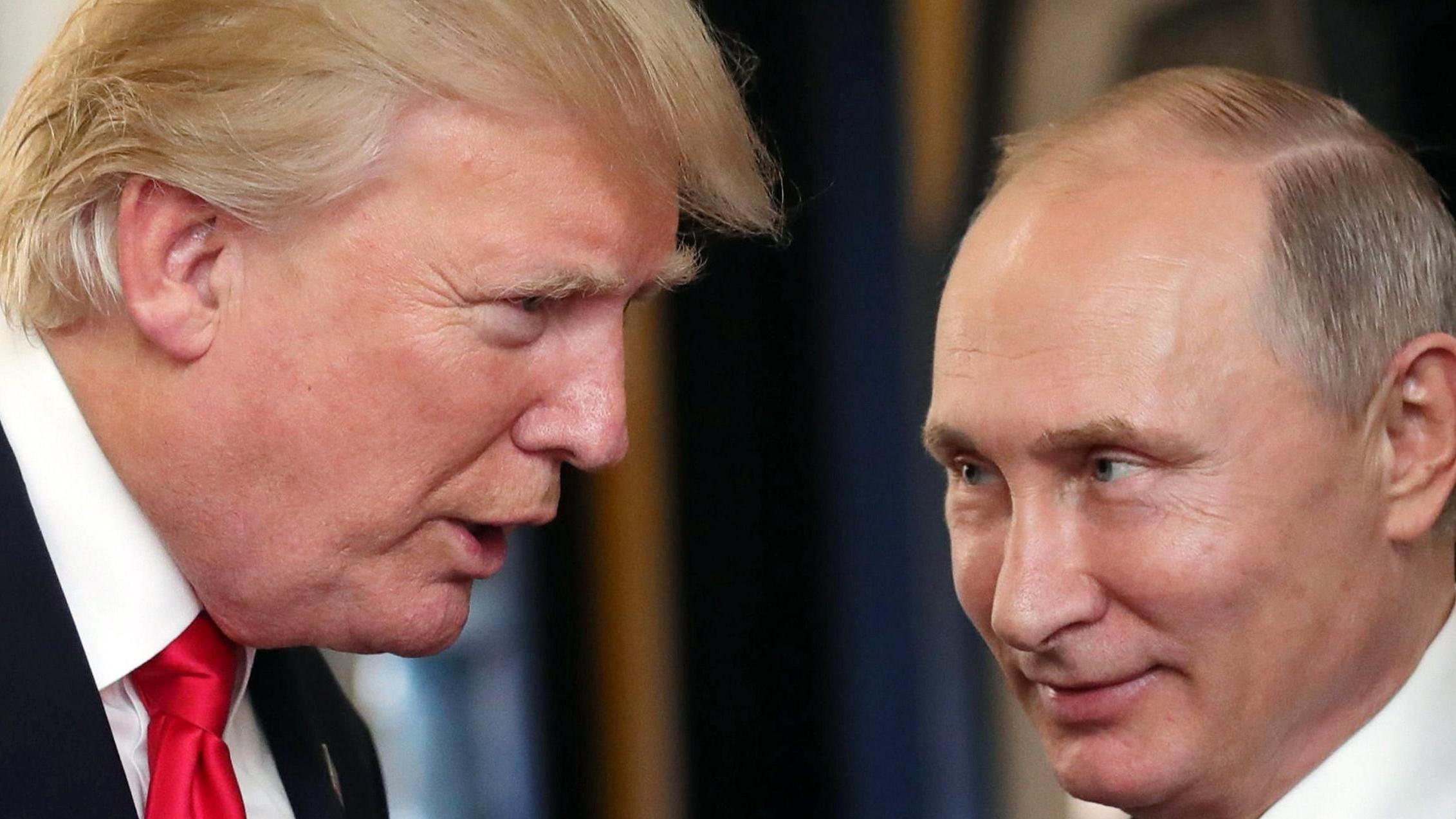
Putin’s Vision: A Multipolar World Without Hegemons
Beyond tariffs and sanctions, Putin reiterated his opposition to a unipolar world order dominated by the United States. He argued for a multipolar framework where no single power dictates terms in global politics or security.
“From the international law point of view, everyone must have equal rights. It doesn’t mean that anyone should dominate over politics or global security… everyone must be equal,” he emphasized.
In this vision, organizations like BRICS and the SCO serve as platforms for collaborative leadership rather than hierarchical dominance.
Trump vs. Putin on Trade
The stark contrast between Trump’s and Putin’s rhetoric has become increasingly clear:
-
Donald Trump: “China kills us with tariffs, India kills us with tariffs... India was the most highly tariffed nation in the world, and you know what, they’ve offered me no tariffs in India anymore. I understand tariffs better than anyone.”
-
Vladimir Putin: “You have countries like India and China, powerful economies. You cannot talk to them in that way. Attempting to weaken their leadership is a mistake. The colonial era is now over.”
What's ahead?
The latest exchange of words between Putin and Trump underscores the deepening divide over how the world’s largest economies should interact. While Trump continues to wield tariffs and sanctions as tools of coercion, Putin is positioning Russia—and by extension, partners like India and China—as champions of a multipolar, post-colonial order where mutual respect replaces punitive diplomacy.
With India caught in the middle of this escalating geopolitical tug-of-war, New Delhi’s choices will not only shape its own economic trajectory but also the balance of power in Asia for years to come.
With inputs from agencies
Image Source: Multiple agencies
© Copyright 2025. All Rights Reserved. Powered by Vygr Media.

